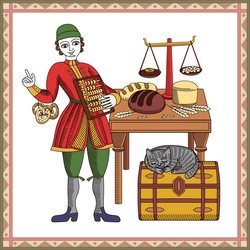Discourse of early modern trade
Richard Hakluyt was an English writer known for promoting colonisation through his work. The EU-funded project RHAK (Networks of trade and religion in Richard Hakluyt's ‘Principal Navigations’) examined the relationship between trade and religion in his work. The aim was to introduce a more sophisticated understanding of religious identity to better understand Hakluyt’s work and his sources. The interdisciplinary approach considered aspects of early modern trade, religion, culture and literature, and blended methodologies of textual analysis with prosopography and social network theory. Until now, scholars have devoted disproportionate attention to Hakluyt’s material relating to the Americas despite the fact that it comprises just one third of the ‘Principal Navigations’. The majority of the text is devoted to trading ventures. Therefore, the study also aimed to show Hakluyt’s vision by considering trading missions to Russia, Persia and the Levant. It explored not only how Protestants traded with Muslims and Orthodox Christians, but also how English Catholics lived and worked alongside English Protestants. It was necessary to reconstruct the trading culture and social networks of these long-distance traders. This work included archival research at the London Metropolitan Archives, London Guildhall Library, British Library, UK National Archives, Clothworkers’ Company and Goldsmiths’ Hall. The team consulted various documents such as port books, trade and haulage accounts, wills, state papers, mercantile correspondence, churchwardens’ accounts and London’s rich civic records. A database was created to house the prosopographical data gathered throughout the course of the project. Findings from the analysis of the material suggest that ‘Principal Navigations’ should not be labelled as representing only one strand of Protestantism. The merchants’ networks were religiously mixed in the 16th century and had much in common. A book with the findings has been planned for publication. The research has also been disseminated at conferences and seminar papers at the universities of Cambridge, Bangor, Plymouth, Limerick, National University of Ireland, Galway and the Institute of Historical Research. The information will be useful for the general public as well as academic community around the world. It will also contribute to the European knowledge economy.







